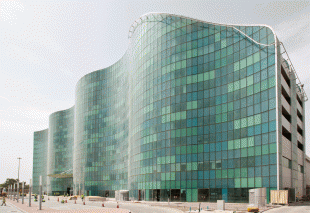

Europe's Rocco Forte pulls out of Abu Dhabi hotel

Europe’s Rocco Forte Hotels has exited the management contract for its only operating property in the Middle East, the Rocco Forte Abu Dhabi.
A spokesperson for Rocco Forte Hotels confirmed the change of management at the property, which is currently operating under the name Al Maqta Hotel Abu Dhabi, but was unable to provide further details.
According to a report by Business Traveller Middle East, discussions are underway with Starwood Hotels & Resorts for the hotel to be operated under its Sheraton brand.
Starwood said in a statement to Hotelier: “At this time, we do not have official news to share regarding a deal signing in the UAE, however this market remains key to our growth strategy across all nine Starwood brands”.
The 281-room, wave-shaped Rocco Forte Abu Dhabi hotel, developed in conjunction with Tourism Development & Investment Company (TDIC) and owner UAE-based Al Farida Investments Company, opened in November 2011.
TDIC and Al Farida Investments Company were unavailable to comment at the time of publishing.
The luxury operator Rocco Forte currently has no operating hotels in the Middle East and North Afica region, but has four signed properties in the pipeline including a 159-key hotel scheduled to open in Jeddah, Saudi Arabia in 2013; a 90-suite golf and spa resort in Marrakech, Morocco due to open in 2014. Two Egypt properties are also expected to open in 2014 comprising a 275-room hotel in Cairo and an 82-room hotel in Luxor.
The group said in 2011 it would also be announcing details of an upcoming Beirut hotel “soon”, but no announcements were made.
In an interview with Hotelier upon the launch of Rocco Forte Abu Dhabi, Sir Rocco Forte said he was confident in the Abu Dhabi hotel’s potential, but acknowledged that competition posed by a flurry of other hotel launches at the time was likely to cause challenges.
“The Abu Dhabi market has been strong in the last 12 months, with high occupancy. There are a lot of new five-star hotels opening which will make things difficult for a year or so until the demand catches up with supply,” he said.